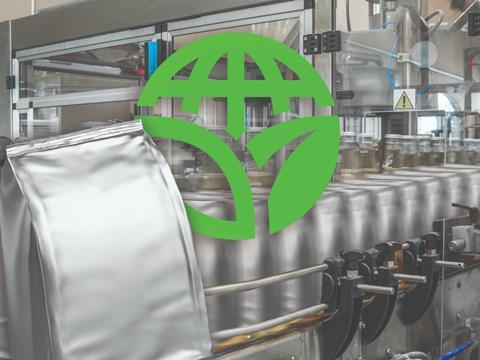
Through automated inspection and data capture, Yoran Imaging’s Process Analytical Monitoring (PAM) system reportedly speeds up the transition to more recyclable substrates, including PE & PP.
The company claims it has successfully demonstrated the value of its thermal imaging-based heat-sealing inspection unit to expedite the incorporation of more sustainable packaging materials. Apparently, the PAM unit has proven its ability to accelerate best practices development and process validation for recyclable heat-sealable substrates including polyethylene (PE), polypropylene (PP) and significantly reduce materials waste.
For food and beverage companies utilising package closure via heat-sealing, the company says the push for sustainable packaging substrates brings the challenge of narrower heat-sealing tolerances, with too little heat yielding a weak seal while too much risks burning the material. It adds discovering and maintaining the best heat seal temperatures for various recyclable materials – often thinner and more finicky than legacy substrates – is typically a time-consuming, trial-and-error endeavour.
Apparently, the PAM system has already been utilised by a Europe-based food company to transition from conventional, non-recyclable packaging to a designed-for-recycling PET/Al/PE laminate. The company states such projects can help food & beverage companies align with increasing consumer demand for more sustainable packaging, as well as comply with mandates such as the EU’s Packaging & Packaging Waste Regulation and industry-wide pledges like Packaging Commitment 2025.
The company states that while data capture expands in a variety of manufacturing settings, technological hurdles and cost-benefit limitations have delayed its adoption by wide swaths of food & beverage packagers. By translating volumes of filling and heat-sealing data into real-time metrics, Yoran Imaging’s systems reportedly empower line operators to pre-empt out-of-spec products or equipment failures before they occur.
Yoran Imaging says for food and beverage customers it aims to eliminate outdated sampling through inspection of each product, decreasing the likelihood of defective products clearing package sealing, and increase productivity with user-friendly data alerting operators when preset quality or original equipment manufacturer (OEM) parameters are degrading, providing guardrails and guideposts that minimise machine downtime through informed pre-emptive measures.
In similar news, last year Perkin Elmer gave us an overview of the analytical methodologies and recommended instrumentation to detect and prevent non-intentionally added substances (NIAS) in food products.
More recently, TekniPlex introduced a series of recyclable, paper-based induction heat seal liners designed to seal dry pharma, nutrition and food products in bottles and jars with the same protective properties as conventional solutions.
If you liked this story, you might also enjoy:
The Brief: How viable is biorecycling for plastics?
Report: How the top brands are progressing on packaging sustainability
The Brief: Using ocean-bound plastic in packaging – how, why and should we?














No comments yet